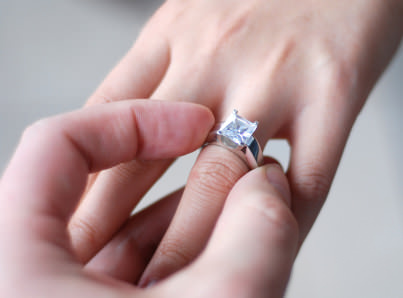What makes some people more prone to wedded bliss or sorrow than others? Researchers at UC Berkeley and Northwestern University have found a major clue in our DNA. A gene involved in the regulation of serotonin can predict how much our emotions affect our relationships, according to a new study that may be the first to link genetics, emotions, and marital satisfaction. The study was conducted at UC Berkeley
“An enduring mystery is, what makes one spouse so attuned to the emotional climate in a marriage, and another so oblivious?” said UC Berkeley psychologist Robert W. Levenson, senior author of the study published online today (Oct. 7) in the journal Emotion. “With these new genetic findings, we now understand much more about what determines just how important emotions are for different people.”

iStockphoto © Abel Mitja Varela
Specifically, researchers found a link between relationship fulfillment and a gene variant, or “allele,” known as 5-HTTLPR. All humans inherit a copy of this gene variant from each parent. Study participants with two short 5-HTTLPR alleles were found to be most unhappy in their marriages when there was a lot of negative emotion, such as anger and contempt, and most happy when there was positive emotion, such as humor and affection. By contrast, those with one or two long alleles were far less bothered by the emotional tenor of their marriages.
“We are always trying to understand the recipe for a good relationship, and emotion keeps coming up as an important ingredient,” said Levenson, who heads up a longitudinal study that has tracked over 150 married couples for more than 20 years.
The new findings don’t mean that couples with different variations of 5-HTTLPR are incompatible, the researchers note. Instead, it suggests that those with two short alleles are likelier to thrive in a good relationship and suffer in a bad one. The results of the study, which looked at the genotypes of more than 100 spouses and observed how they interacted with their partners over time, bore this out, they said.
“Individuals with two short alleles of the gene variant may be like hothouse flowers, blossoming in a marriage when the emotional climate is good and withering when it is bad,” said Claudia M. Haase, assistant professor of human development and social policy at Northwestern University and lead author of the study, which she conducted as a postdoctoral fellow at UC Berkeley. “Conversely, people with one or two long alleles are less sensitive to the emotional climate.”
“Neither of these genetic variants is inherently good or bad,” Haase added. “Each has its advantages and disadvantages.”
Participants in the study belong to a group of 156 middle-aged and older couples whose relationships Levenson and fellow researchers have followed since 1989. Every five years, the couples have come to UC Berkeley to report on their marital satisfaction and interact with one another in a lab setting while researchers code their conversations based on facial expressions, body language, tone of voice and topic of discussion.
More recently, 125 of the study participants provided DNA samples, and researchers matched their genotypes with their levels of marital satisfaction and the emotional tenor of their interactions in the lab setting.
For spouses with two short 5-HTTLPR alleles, who made up 17 percent of the spouses studied, researchers found a strong correlation between the emotional tone of their conversations and how they felt about their marriage. For the 83 percent of spouses with one or two long alleles, on the other hand, the emotional quality of their discussions bore little or no relation to their marital satisfaction over the next decade.
The link between genes, emotion and marital satisfaction was particularly pronounced for older adults. “One explanation for this latter finding is that in late life – just as in early childhood – we are maximally susceptible to the influences of our genes,” Levenson said.
ᔥBerkley University of California



